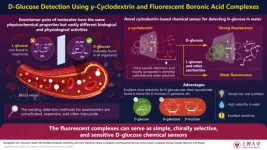(Press-News.org) A new paper in The Quarterly Journal of Economics, published by Oxford University Press, measures the overall impact of electoral campaigns and finds that televised debates have little effect on the formation of voter choice. Information received from other sources such as the media, political activists, and other citizens, matters more.
Researchers and pundits have long debated the impact of political campaigns. One view is that the weeks immediately preceding elections are a crucial period. Campaign information can help voters assess the performance of incumbent politicians, compare the qualities and positions of all candidates, and perhaps even reconsider their policy preferences. But some researchers argue that campaigns have minimal effects because most people decide on their candidate long before the election.
Researchers here used survey data from 62 elections in ten countries (Austria, Canada, Germany, Italy, the Netherlands, New Zealand, Sweden, Switzerland, the United Kingdom, and the United States) since 1952 to study how voters make their choice. The data included 253,000 observations. The authors looked at the difference between whom voters said they said they would vote for, before the election, and whom they said they voted for, after the election.
The investigation revealed that the fraction of people with identical vote declarations before and after the election increased by 17 percentage points over the 60 days leading up to the election, from a baseline of 71%. On the last day before the election, 12% of voters still do not know (or will not say) whom they will vote for or state a different vote intention than their ultimate choice. In total, 17% to 29% of voters make up their minds during the last two months of campaigns. This large increase in individual vote choice consistency is associated with a 5-percentage point reduction in the distance between predicted and final vote shares: voters who make up their minds in this period significantly affect the electoral results.
Within a given election, younger and less educated voters are more influenced by campaign information, and voters who identify strongly with a party are less so. Changes in vote choice are driven by changes in voters’ beliefs on the candidates’ positions and qualities as well as changes in the issues voters find most important. By contrast, their policy preferences remain stable throughout the campaign.
The researchers here also investigated evidence on the relative importance of different sources of information. Information from televised debates had little effect on voter decisions. Shocks such as natural and technological disasters, which occur independently of the campaigns, did not appear to change voter decisions either. These results suggest that information acquired throughout the campaign from sources like news stories or friends is more important.
The authors were surprised to find that TV debates – for all the interest they generate, the large viewing audience they draw, and the many media commentaries they provoke – do not appear to change voting behavior. Overall, the results suggest that even if voters sometimes seem relatively uninformed and uninterested, their vote choices actually depend on extensive information beyond just debates.
“Since our data cover 62 elections, they enable us to compare the importance of electoral campaigns in different settings,” said the paper’s lead author, Vincent Pons. “Campaigns play a decisive role in all periods and all countries we study. But interestingly, the fraction of voters changing their minds in the last two months before the election is much smaller in the U.S. than in Canada, Germany, New Zealand, and all other democracies in our sample.”
The paper “How Do Campaigns Shape Vote Choice? Multi-Country Evidence from 62 Elections and 56 TV Debates” is available (at midnight on March 2) at: https://academic.oup.com/qje/article-lookup/doi/10.1093/qje/qjad002.
Direct correspondence to:
Vincent Pons
Associate Professor of Business Administration
Harvard Business School
Morgan Hall 289 Soldiers Field
Boston, MA 02163
vpons@hbs.edu
To request a copy of the study, please contact:
Daniel Luzer
daniel.luzer@oup.com
END
Study finds political campaigns may change the choices of voters – but not their policy views
2023-03-02
ELSE PRESS RELEASES FROM THIS DATE:
Older Black men are likelier to die after surgery than others, particularly following elective procedures, new UCLA research suggests
2023-03-02
Embargoed for Use Until:
3:30 p.m. PT/6:30 p.m. ET on Wednesday, March 1, 2023
Older Black men are likelier to die after surgery than others, particularly following elective procedures, new UCLA research suggests
Older Black men have a higher chance of dying within 30 days of surgery than do Black women and white men and women – with their odds of death 50% higher after elective surgery compared with white men.
The researchers suspect that the “especially high cumulative amounts of stress and allostatic load” that Black men face the U.S. may significantly contribute to declines in their physical health, they write.
“While ...
Black men more likely to die after surgery than White men, or women of either race
2023-03-02
Black men have a higher death rate within 30 days of surgery compared with any other subgroup of race and sex, finds a study of adults in the United States published in The BMJ.
This inequality in death rate was mainly observed for elective, or planned, surgeries, where the death rate for Black men was 50% higher than that of White men.
The researchers say further research is needed to understand better the “factors contributing to this higher mortality rate among Black men after elective surgery.”
In previous studies, racial inequities in surgical care and outcomes, including a higher death rate following surgery for Black patients, have been well documented.
However, ...
US government catalyzed and substantially invested in mRNA covid-19 vaccine development over decades
2023-03-02
In the 35 years before the covid-19 pandemic, the US government invested at least $337 million into critical research that led to the mRNA covid-19 vaccines, finds a study published by The BMJ today.
The US government also paid $31.6 billion during the pandemic to support vaccine research, production, and to purchase vaccines for all Americans and for global donation.
These public investments saved millions of lives - and mRNA vaccine technology also has the potential to address future pandemics and treat other diseases. But the researchers ...
Public investment in critical research contributed to the success of mRNA COVID-19 vaccines
2023-03-02
Moderna and Pfizer-BioNTech have recently announced plans to increase the price of their respective mRNA COVID-19 vaccines, thrusting them into the spotlight of debates around drug price hikes. A new study, led by investigators from Brigham and Women’s Hospital, a founding member of the Mass General Brigham health care system, analyzed the role of public funding in the development of mRNA vaccines. In a systematic assessment, the team found that over the last 35 years, three federal agencies—the National Institutes of Health, the Department ...
Only two in five British businesses have introduced support to help staff with the rising cost of living as many see operating costs rise
2023-03-02
New research from the Work Foundation at Lancaster University reveals that while two thirds of senior business leaders (66%) agree that employers have a ‘substantial role’ to play in supporting staff through the rising cost of living, only 40% have introduced new support measures since the start of 2022.
At the same time, four in ten business leaders (41%) also report increases in production costs in their organisation. Pressures that are likely to increase, the Work Foundation ...
Fishing for proteins: Scientists use new optical tweezer technology to study DNA repair
2023-03-02
Tucked away in a small, dark room at UPMC Hillman Cancer Center, Brittani Schnable is on a fishing expedition.
Wielding a joystick similar to those used by video gamers, she casts microscopic beads into an ocean of molecules, pushing and pulling the beads apart until they eventually catch a strand of DNA. After a few taps of the keyboard, a lightshow begins. A burst of colors flashes across the black screen like fireworks exploding in the night sky.
Although these colors seem random at first, a pattern starts to emerge. Lines of blue and red light streak across the screen: A DNA repair protein has bound to the site of damage.
Schnable, a Ph.D. student in Dr. Bennett ...
Can’t exercise a particular muscle? Strengthening the opposite side of your body can stop it wasting away
2023-03-02
Loss of muscle strength can be one of the most damaging outcomes when someone is unable to move a part of their body for a long period of time.
But a new Edith Cowan University (ECU) study may have found a way to offset or even protect against this — and it doesn’t even involve the affected body part at all.
Injury or illness may see a part of the body incapacitated for weeks or even months, causing unused muscles to weaken and lose their mass and strength, which can have ...
Physical activity can help mental health in pre-teen years
2023-03-02
Regular physical activity can improve adolescents’ mental health and help with behavioural difficulties, research suggests.
Engaging in regular moderate to vigorous physical activity at age 11 was associated with better mental health between the ages of 11 and 13, the study found.
Physical activity was also associated with reduced hyperactivity and behavioural problems, such as loss of temper, fighting with other children, lying, and stealing, in young people.
Researchers from the Universities of Edinburgh, Strathclyde, Bristol, and Georgia in the United States explored data from the Children of the 90s study (also known as the Avon Longitudinal Study of ...
New fluorescent chiral-selective receptor system represents a breakthrough in molecular detection with potential for applications in diabetes management
2023-03-02
Diabetes mellitus, simply called diabetes, is a metabolic disorder characterized by the presence of abnormally high concentrations of glucose in blood. Existing methods for the diagnosis of diabetes rely on traditional techniques of detecting glucose in blood serum samples—a process that is typically tedious and expensive.
Molecular recognition is the science of accurately detecting specific compounds by exploiting their binding properties. Here, a receptor molecule–a kind of sensor–selectively binds to a target molecule. This process triggers some reaction, say, a change ...
Sleep too much or too little and you might get sick more, scientists find
2023-03-02
A good night’s sleep can solve all sorts of problems – but scientists have now discovered new evidence that sleeping well may make you less vulnerable to infection. Scientists at the University of Bergen recruited medical students working in doctors’ surgeries to hand out short questionnaires to patients, asking about sleep quality and recent infections. They found that patients who reported sleeping too little or too much were more likely also to report a recent infection, and patients ...

